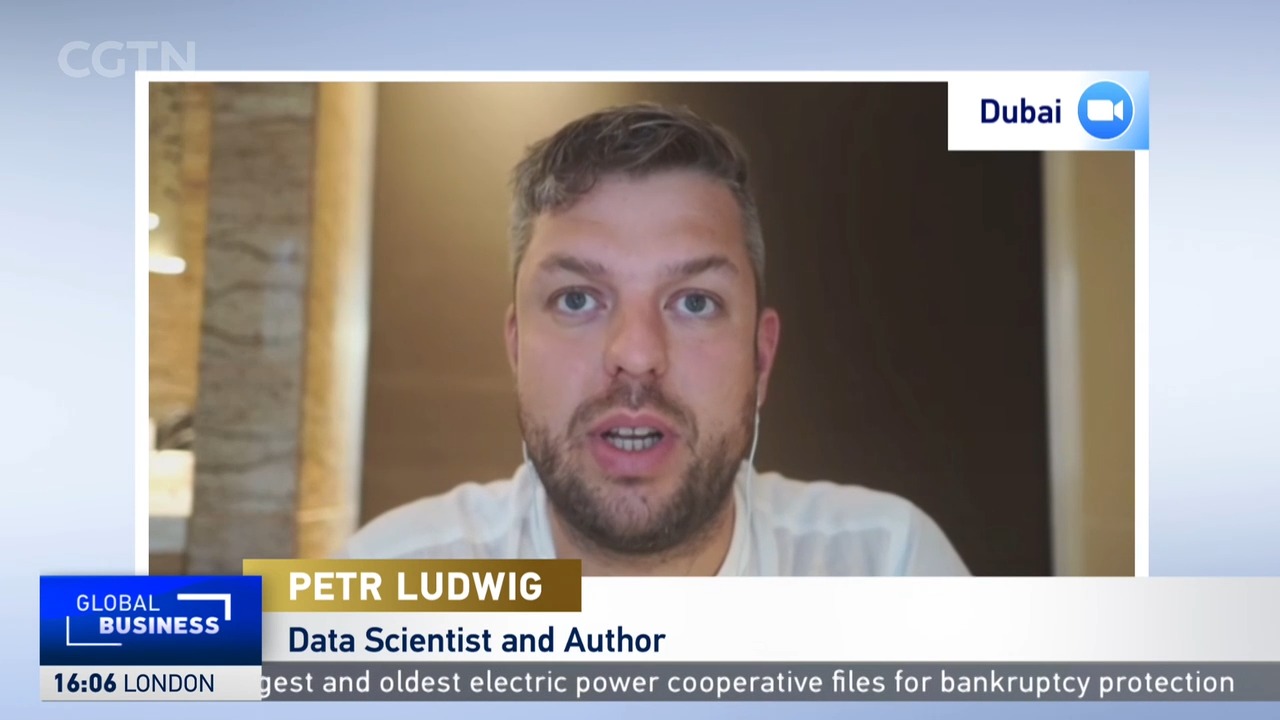03:23

In the past week, Czechia recorded the world's highest per-capita COVID-19 infection rate – 11 times higher than neighboring Germany. Exactly one year since detecting its first case, the relatively small European nation of 10.7 million people has seen its death toll more than double since mid-December, to more 20,700, prompting a warning from Prime Minister Andrej Babis that the healthcare system faces collapse.
The surge is partly due to the spread of new variants of the virus. But there has been strong criticism of the government's handling of the pandemic, particularly its lockdown management; while the Czech people do not have a good recent record of obeying virus prevention rules.
READ MORE
France benefits from China-EU deal
How well are COVID-19 vaccines working?
Meet Germany's 'ethical' hunters
Data scientist Petr Ludwig helped advise the Czechia government on its face-mask policy. He told CGTN Europe's Global Business program people's behavior had changed since the initial outbreak a year ago.
"During the summer, people started to believe some conspiracy theories and misinformation that masks are somehow dangerous," he said. "The government stopped the mask mandate during the summer because we had very good numbers."
"At the end of the summer, our numbers went back [up] again and the infection rate started to grow," he added.

A man wears a paper mask with the words 'stupid people' on during protests over social distancing measures during the winter in Czechia. /AP/Petr David Josek
A man wears a paper mask with the words 'stupid people' on during protests over social distancing measures during the winter in Czechia. /AP/Petr David Josek
In response to those spiraling numbers, the government has launched its toughest restrictions yet – a three-week stay-at-home order and full school closures. But Babis has resisted calls to shut down industry, saying it would cause job losses. Factories and workplaces will stay open – with mandatory COVID-19 tests for companies with at least 50 employees.
Deputy Prime Minister Jan Hamacek, leader of the junior government party the Social Democrats, said without controls on companies "we will end up exactly where we are now" in a month's time.
Robin Sin, a regional vaccination coordinator and crisis medicine expert also said non-critical industry should be shut down temporarily. He called the government's decision to limit movement between districts "completely insufficient."

A strict three-week lockdown has begun in Czechia, including limits on regional travel. /Jaroslav Ozana/CTK via AP
A strict three-week lockdown has begun in Czechia, including limits on regional travel. /Jaroslav Ozana/CTK via AP
But Czechia's leaders have been keen to deflect the blame elsewhere. Babis says the European Union's slow vaccine approval and procurement has hindered his country's vaccination program. On Sunday, President Milos Zeman took to national television: "After consulting the prime minister, I have sent a letter to [Russia's President] Vladimir Putin, asking him for a supply of the Sputnik vaccine."
"Information from the Russian embassy suggests it could arrive in the next few days," he said, adding that Prague is also considering procuring China's Sinopharm vaccine.
Both the Sputnik V and Sinopharm jabs are yet to be approved by the EU regulator, the European Medicines Agency (EMA).

Neighboring Slovakia has also turned to Russia, ordering 2 million doses of the Sputnik V vaccine. /Frantisek Ivan/TASR via AP
Neighboring Slovakia has also turned to Russia, ordering 2 million doses of the Sputnik V vaccine. /Frantisek Ivan/TASR via AP
Babis took a more direct tone in an interview with CNN Prima: "We cannot wait for the EMA," he said.
"SUKL [the Czechia drugs authority] must examine the documentation and if they approve it [Sputnik V], the Health Ministry has to issue an exemption … and then, whoever is interested can get inoculated."
But data scientist Ludwig told CGTN Europe that while there had been delays in the EU roll-out, the government was also to blame for the hold-ups. "We only have between 3 and 4 percent of people vaccinated," he said.
"We are waiting for new doses, but with those doses that have been delivered, the government was slow in delivering those vaccines around the country and delivering them to our patients."
Source(s): Reuters
,AFP
,AP

